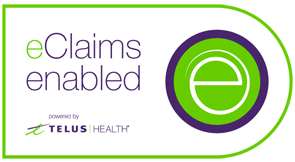If you’re an adult living with ADHD, you know how tricky it can be to stay focused and keep your thoughts in order. Traditional treatments like medication and therapy are common, but many are also curious about complementary, natural options. One such option is Pycnogenol—a supplement made from the bark of a French maritime pine tree.
Recently, the STG Health CEO has been getting a lot of inquiries about Pycnogenol and its potential role in managing ADHD symptoms. Curious to explore the topic further, he decided to write this article to offer a balanced look at both the promising benefits and the considerations you should keep in mind.
What’s the Deal with Pycnogenol?
Simply put, Pycnogenol is a natural extract that’s packed with antioxidants—those helpful compounds that protect your cells from damage. People have been using it for everything from boosting skin health to improving circulation, and now there’s buzz about its potential to support brain function. Since oxidative stress (an imbalance of free radicals and antioxidants) might play a role in ADHD symptoms, the idea is that Pycnogenol’s antioxidant power could help create a healthier brain environment.
The Upside: What Might Pycnogenol Do for ADHD?
There are a few reasons why some adults with ADHD are giving Pycnogenol a try:
- Better Focus and Attention: Some folks report that Pycnogenol helps clear away the mental fog, making it easier to concentrate. Early studies even suggest that this supplement might enhance working memory and planning skills, which are key challenges for many with ADHD.
- Calming Hyperactivity and Impulsivity: ADHD isn’t only about struggling with focus—it often comes with restlessness and impulsive behavior too. A handful of studies have noticed improvements in these areas, with participants feeling less fidgety and more in control after using Pycnogenol.
- Brain Protection: As an antioxidant, Pycnogenol may help reduce oxidative stress, potentially protecting brain cells and supporting overall cognitive health. A healthier brain might mean sharper focus and less mental fatigue over time.
The Downside: What Should You Watch Out For?
Of course, no supplement is a magic bullet, and Pycnogenol is no exception. Here are a few points to keep in mind:
- Limited Research: While there’s some promising data, the science isn’t settled yet. Most studies on Pycnogenol and ADHD have been small or short-term. This means we don’t yet have a full picture of how effective it really is for adult ADHD.
- Different Strokes for Different Folks: What works wonders for one person might do little for another. The effects of Pycnogenol can vary, so while some adults might notice improvements, others might not see much of a difference.
- Cost Considerations: High-quality Pycnogenol supplements can be on the pricier side, and since they aren’t typically covered by insurance, the cost can add up if you’re taking it daily.
- Safety and Side Effects: The good news is that Pycnogenol is generally safe, with only mild side effects like a slight stomach upset for some people. However, as with any supplement, it’s wise to check in with your healthcare provider before you start, especially if you’re already on other medications.
Looking to the Future
So, where do we go from here? More research is definitely needed. Future studies will help clarify who might benefit most from Pycnogenol and how it should be used—whether on its own or alongside traditional treatments. Researchers are also keen to understand exactly how it works, whether through reducing oxidative stress, boosting blood flow, or even affecting brain chemicals.
For now, Pycnogenol remains an intriguing option for those looking for a little extra help with ADHD symptoms. It’s not a replacement for proven treatments, but it could be a complementary tool in a broader, personalized approach to managing ADHD.
Wrapping It Up
In a nutshell, Pycnogenol offers an interesting natural option for adults with ADHD. Its potential to improve focus and support brain health is appealing, especially given its generally safe profile. However, with limited research and varying results, it’s best approached with cautious optimism. If you’re curious about trying Pycnogenol, have a chat with your doctor to see if it might be a good fit for your treatment plan.
Disclaimer
STG Health does not endorse either taking or not taking Pycnogenol as a treatment option. The information provided in this blog post is for informational purposes only and should not be considered medical advice. Always consult with your healthcare provider before starting any new supplement or making changes to your treatment plan.
The conversation about natural treatments like Pycnogenol is just beginning. As more research unfolds, we’ll have a clearer picture of how this supplement fits into the ADHD treatment puzzle. Until then, staying informed and open-minded is key—here’s to finding the best path to a clearer, more focused life!















